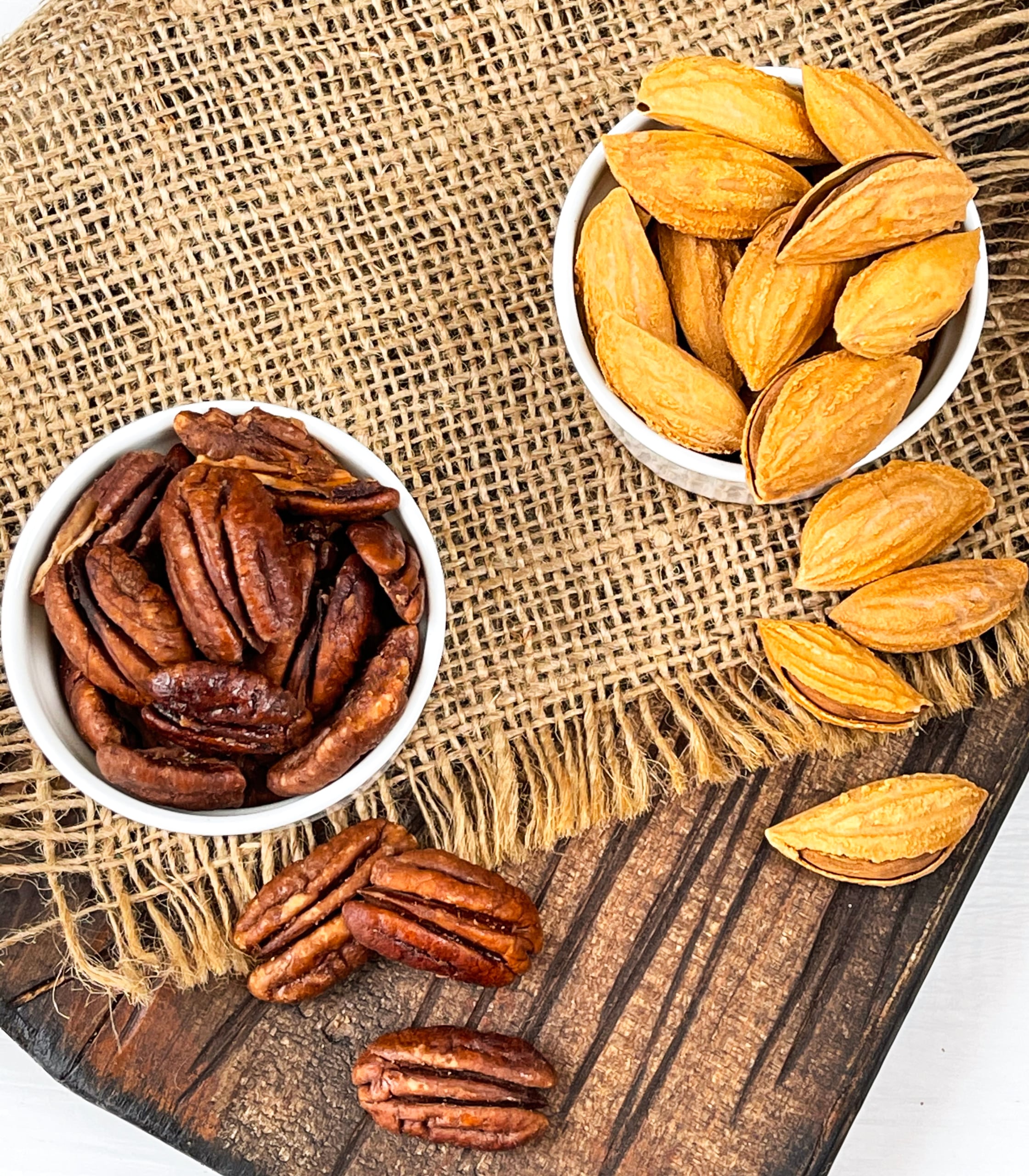In the battle of pecans vs. almonds, which tree nut comes out on top regarding nutrition, health benefits, and culinary purposes? Glenda’s Farmhouse provides both of these delicious nuts, and whether you choose one or the other, the result is a win!
FYI about Glenda’s Farmhouse

Walnuts and almonds grown by Glenda’s Farmhouse fulfill all of the expectations for high-quality results. We also supply various other products, including hazelnuts, cashews, pecans, and sea salt varieties.
Comparing Pecans and Almonds
When comparing pecans and almonds, let’s begin with where they come from. Pecans are a native nut to North America, while almonds likely came from Asia originally. Both pecans and almonds can be used to make flour, milk, and more; they’re also regularly used in baking and cooking and enjoyed on their own as tasty, healthy snacks.
Glenda’s Farmhouse offers both pecans and almonds to keep on hand for whatever purpose you have in mind.
Breaking Down a Nutritional Comparison
All figures are based on an ounce of the nuts in question. An ounce equals about 19 pecans and about 24 almonds.
- Calories – Pecans have about 196 in an ounce, and almonds have 164.
- Protein – Pecans have about 3 grams per serving, and almonds have 6 grams.
- Fat – Pecans contain about 20 grams of fat in an ounce, while almonds have 14.2 grams in the same amount.
- Carbohydrates – Pecans contribute 4 grams of carbs to the diet, compared to 6.1 grams from almonds.
- Fiber – Pecans have 3 grams of fiber, compared to 3.5 grams from almonds.
On the Glycemic index, both almonds and pecans fall at the low end of the spectrum, but almonds, at 0, are even lower than pecans, which equal 10 on the index.
Breakdown of Health Impacts from Pecans versus Almonds
Weight Factors – Contrary to popular mythology, pecans, and almonds do not cause weight gain. The fats within these nuts are highly monounsaturated and polyunsaturated, the good kinds of fats. With plenty of fiber, vitamins, and minerals, consumption of pecans and walnuts as part of a healthy diet can help manage weight and minimize associated health dangers, including the following:
- Heart disease
- Cholesterol
- Blood Pressure
- Blood sugar levels
- Cognition
- So much more
Storing Pecans and Almonds
Since both pecans and almonds taste great and are great for you, why not keep a ready supply of both on hand for your snacking and culinary uses?
When you have an in-house inventory, appropriate storage is essential for maximizing freshness. Both require cool environments and airtight storage containers.
Pecans – remain fresh for up to 9 months in the refrigerator and up to two years in the freezer. During these two years, you can thaw and refreeze pecans repeatedly, and when ready to use, get them out of the freezer. No thawing is needed for use in cooking. Good pecans will be plump and brown.
Almonds – can be frozen for up to two years and will remain fresh in the fridge for several months. When almonds go bad, they will have a chemical, rancid taste that you will be able to identify.
In the flavor and nutrition battle of pecans vs. almonds, both come out winners! Choose Glenda’s Farmhouse for your supply. You can order online or by calling (530) 839-2236.



